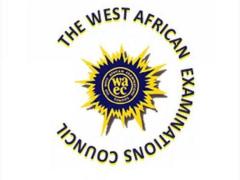John Gayvolor, Head of the National Office, in Liberia, says the 15 years of civil war largely retarded educational development in the country.
Gayvolor spoke to the News Agency of Nigeria on the sideline of the recently concluded Registrar’s Staff Appraisal Committee meeting of the council, held in Accra, Ghana.
NAN reports that the meeting, which was chaired by the Registrar of West African Examinations Council, Dr Iyi Uwadiae, had all the Heads of National Offices of the five member countries in attendance, except that of the Gambia.
It also reports that the first Liberian civil war was fought between 1989 and 1996; while the second one was between 1999 and 2003.
According to the Liberian HNO, the war left in its wake, challenges in various sectors of that country’s economy with education being the worst hit.
He listed such challenges to include: poor logistics for the conduct of public examinations, inadequate financing, manpower and poor attitudes of students to studies while examination malpractice had become worrisome.
Gayvolor said: “This year has proved to be one of the most challenging in recent years, especially, in the aspect of conducting examinations.
“As we speak, it is heavily raining back home in Liberia and we will be conducting the Liberia Senior High School Certificate Examination next week.
“What this means is that moving around will require logistics, especially, to pull out our vehicles that may get stuck in mud while taking the examination materials to various centres.
“Also, we have the issue of inadequate teachers and where they are available; they are poorly trained, coupled with inadequate infrastructure.
“The quest for quick money is high too there.
“We have few good teachers but because of the 15 years of civil crisis, most of them had left for greener pastures.
“Now, people in the classrooms who are calling themselves teachers are, indeed, not trained as they are more interested in making quick money by commercialising education.”
According to Gayvolor, these teachers usually set tests for students and in exchange for money, award grades that they (students) do not deserve.
He added that with such development, whenever the students were exposed to external examinations, the performance was usually poor.
He said: “It is not that they do not have the abilities but because they lack focus and often attracted to irrelevant things.”
Gayvolor emphasised the need for all stakeholders to be involved in turning the trend around.
According to him, parents must live up to their responsibilities by ensuring that the right thing is done, especially, by inculcating moral values in their children.
Gayvolor stated: “Parents should stop giving money to their children in order to buy grades.
“School authorities must also ensure that teaching is carried out as designed by the Ministry of Education.
“The ministry of education must monitor and ensure that recommended texts are used, qualified teachers are recruited and motivated with good remunerations that will halt the search for greener pasture.”
The Liberian WAEC boss also said that infrastructure should be put in place for conducive teaching and learning activities to thrive.
He told NAN that the country was trying to transit fully to WASSCE, adding that all along the students were only exposed to the Liberia’s National Examination.
He said; “We have just started doing the West African Senior School Certificate Examination on pilot basis.
“This, alone, is also a challenge to our students who have been used to our national examination only.
“Our national examination will be phased out gradually by 2018.
“By the end of 2018, all candidates in Liberia will be taking only the international examination, which is WASSCE at the senior level.”


